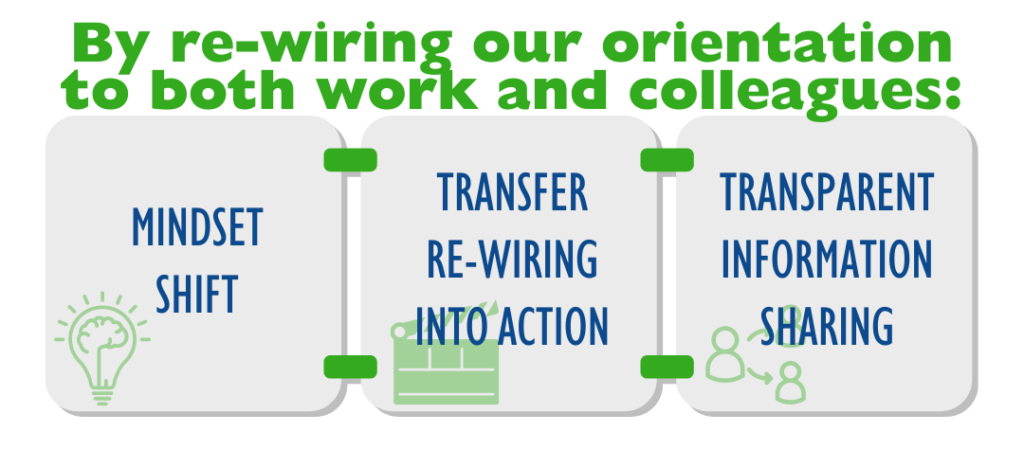Being an “Elder at work” – the other side of the Generational Divide
Much has been written about a “generational shift” within the social sector and what it means for our organizations. We’ve recently shared some excellent insights from a few of our younger colleagues – Sumaya Quillian, Rylan Kepner, and Christine Chen. As someone who is now firmly entrenched in my 60’s, one of the older people on our team, I want to offer thoughts from this vantage point..
The large majority of the 21 people in our firm are in their 40’s, many in their 30’s or 20’s. As my role within the firm has shifted, I began to consider how I might continue adding value in a way that was both meaningful and respectful, enabling the firm, my colleagues, and myself to continue to grow. How could I continue to be a leader in the firm while also creating space for and supporting emerging leaders? Acknowledging that other parts of my identity as a white, middle class, male also affect how I show up at work, what does it mean to be a late-career professional – which is a gentle way of admitting to being one of the oldest folks on the team!
Clearly, this is a question for many organizational leaders in the sector who belong to the tail end of the Baby Boom. With many thanks to Chip Conley for his book, Wisdom @ Work: The Making of a Modern Elder, here are some thoughts about how different generations can successfully collaborate across the social sector and within organizations.
As with every generation, younger workers bring their own set of experiences, perspectives, and skills – as well as a desire for voice in the decisions that affect their work. As the call for greater inclusion and access to power has grown louder, the challenge of balancing the wisdom and perspectives of more experienced workers with the new thinking and energy of our younger colleagues has sharpened.
So, how can we best combine the talents and smarts of the full team in a way that contributes to organizational success? By re-wiring our orientation to both work and colleagues.

The first step is a mindset shift. Effectively engaging everyone in your organization does not mean asking older workers to just “step aside and make way” for younger colleagues. Nor does it mean that younger colleagues should simply “do what we say.” Rather, it’s critical to acknowledge the value brought by everyone on the team – regardless of career stage. utilizing the collective skills, wisdom, and perspectives of the full team ensures an organization will benefit from a broad array of talent and experience, creating opportunities for the long-range perspective and emotional intelligence developed over time to complement the creativity, energy, and desire for change that come with fresh eyes.
As part of this shift, more experienced colleagues must recognize that decades of experience does not automatically equate with wisdom! Likewise, younger colleagues must recognize that youth and impatience for change do not necessarily equate with having all of the answers or knowing the best path forward.
A second step is to transfer this re-wiring into action. While we all have a responsibility to act based on this change in mindset, much of the onus rests with more experienced colleagues. We likely have more power within our organizations and therefore a greater ability to welcome, encourage, and support our younger colleagues to create a bigger table – not to just invite them to ours. So do it! Talk with colleagues about how to create these spaces and put ideas into practice. Create clarity of expectations, roles, and responsibilities in leading the organization while reducing your organization’s fear of mistakes. Approaching this in the spirit of collaboration – how can we, together, strengthen the impact of our work – means collective ownership of our successes and challenges. This results in smarter thinking, better decisions, and greater buy-in across the organization.
Finally, open yourself up to honest and transparent information sharing and questioning; to balancing mentoring younger workers with a learning and curious mindset – what Conley refers to as being a “mentern.” By considering how to share our hard-won experience and approaching these relationships with an intern mindset – a thirst for new knowledge – all will benefit.
This won’t be easy. We live in a society that venerates experience while also prizing youth, and often pits generations against each other. But the work of our organizations is too important to allow generational barriers to hold us back. All the more reason to take these steps to bring the full range of experience into the leadership of our organizations. And, all the more reason for elders to take the initiative, leading changes that will promote greater impact. Embrace your elder status, leverage your experience to develop those who will carry on the work after you leave the scene, and do it with joy and curiosity!


Comment section
2 thoughts on “Being an “Elder at work” – the other side of the Generational Divide”